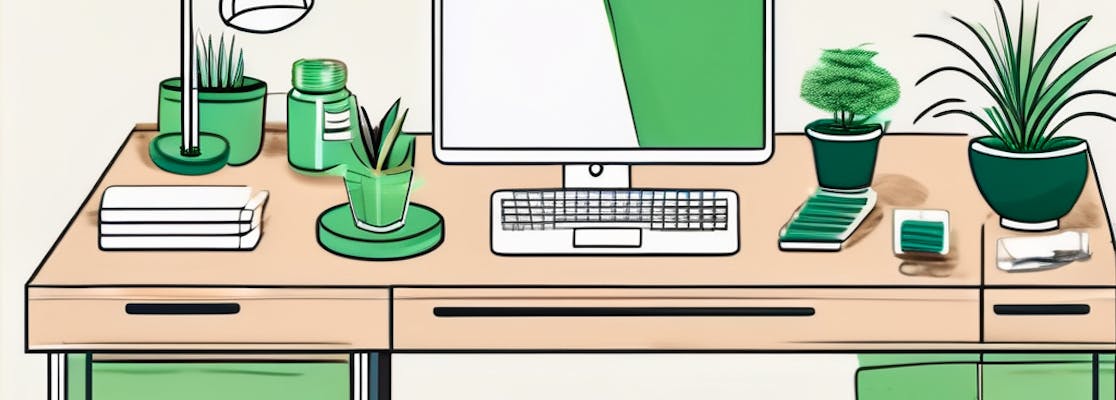How to Organise Your Desk for Physical and Mental Clarity
- Desk Organization: The Importance of a Clean and Organized Desk Space
empty
empty
empty
- Desk Organization: Decluttering Strategies for a Productive Workspace
empty
empty
empty
empty
empty
- The Must-Have Desk Organizing Accessories
empty
empty
empty
empty
- Creating a Personalized System for Managing Paperwork
empty
empty
empty
empty
- Strategies for Maintaining an Organized Desk on a Daily Basis
empty
empty
empty
empty
empty
- Frequently Asked Questions
- Final Thoughts
In today's fast-paced and demanding world, maintaining a clean and organized desk space is crucial for physical and mental wellbeing.
A cluttered desk can not only hinder productivity but also create unnecessary stress.
In this article, we will explore the importance of a clean and organized desk space, decluttering strategies for a productive workspace, must-have desk organizing accessories, creating a personalized system for managing paperwork, as well as strategies for maintaining an organized desk on a daily basis.
Desk Organization: The Importance of a Clean and Organized Desk Space
Improved Productivity
A clean and organized desk space is the foundation for an efficient and productive work environment.
When your desk is cluttered, it becomes a breeding ground for distractions. Every time you need to find a specific document or item, you waste precious minutes rummaging through the mess. This disrupts your workflow and hampers your ability to stay focused on the task at hand.
When your desk is clutter-free, you can easily find the items you need, saving valuable time and reducing distractions. It allows you to focus, boosting concentration and enabling you to produce high-quality work.
A clean and organized desk provides a visually appealing and inviting space that encourages creativity and efficiency.
Professionalism
A tidy desk promotes a sense of professionalism and attention to detail. When clients or colleagues visit your workspace, they are more likely to perceive you as organized and reliable. It reflects positively on your work ethic and can enhance your professional reputation.
Additionally, an organized desk allows you to showcase your personal style and creativity through carefully selected decorations and desk organization supplies.
Mental Well-Being and Clarity
Clutter has been found to increase stress levels and reduce cognitive function. The visual distractions caused by a cluttered desk can overwhelm the brain and hinder focus and productivity.
On the other hand, an organized environment promotes a sense of calm and clarity. It allows your mind to focus solely on the task at hand, without being overwhelmed by unnecessary visual stimuli.
This can lead to increased productivity, improved decision-making, creative problem-solving and a greater sense of overall wellbeing.
The act of physically organizing your space also has a psychological effect, allowing you to feel more in control and focused.
Creating physical order in your workspace is not just about tidying up; it is a conscious effort to prioritize your mental well-being and optimize your productivity.
Desk Organization: Decluttering Strategies for a Productive Workspace
To achieve a clean and organized desk space, it is essential to declutter regularly. Start by removing items that are unnecessary or no longer serve a purpose.
Sort through your belongings and categorize them into three groups: keep, donate/sell and discard. Be ruthless in letting go of items that are taking up space but not adding value to your work.
Consider implementing the "one in, one out" rule, where you only introduce new items once you have cleared out something old.
Now, let's dive deeper into some effective decluttering strategies to help you transform your workspace into a haven of productivity:
1. Start With a Clear Vision
Before you begin decluttering, take a moment to envision your ideal workspace.
How do you want it to look and feel?
Having a clear vision will motivate you throughout the decluttering process and help you make decisions about what to keep and what to let go.
2. Categorize and Conquer
As mentioned earlier, categorizing your belongings into keep, donate/sell and discard piles is crucial.
However, you can take it a step further by creating subcategories within each group.
For example, under the "keep" category, you can have subcategories like essential office supplies, sentimental items and frequently used tools. This level of organization will make it easier for you to find what you need when you need it.
3. Create Dedicated Spaces
Having designated areas for different types of items is key to maintaining an organized workspace.
Use bins, drawers and organizers to create dedicated spaces for office supplies, paperwork and electronics.
For instance, you can have a drawer specifically for pens, another for sticky notes and a separate shelf for your reference books. This way, everything has its place, making it easier to find and put things away.
4. Implement Daily Tidying Habits
Decluttering is not a one-time task; it requires consistent effort to maintain a clutter-free workspace.
Implement a daily habit of tidying up and returning items to their designated spots.
Spend a few minutes at the end of each day to put away any items that have strayed from their assigned places. This simple practice will help you start each day with a clean slate and prevent clutter from piling up again.
5. Embrace Minimalism
Consider adopting a minimalist mindset when it comes to your workspace. Keep only the items that are necessary for your work and bring you joy.
Let go of excess decorations, knick-knacks and outdated technology. By embracing minimalism, you create a space that is visually appealing, promotes focus and reduces the need for constant decluttering.
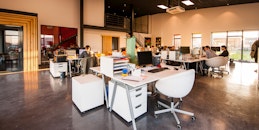
The Must-Have Desk Organizing Accessories
Investing in these must-have desk organizing accessories can transform your workspace from chaotic to orderly.
Not only will these desk organization supplies help you stay tidy, but they will also enhance the overall aesthetics of your desk.
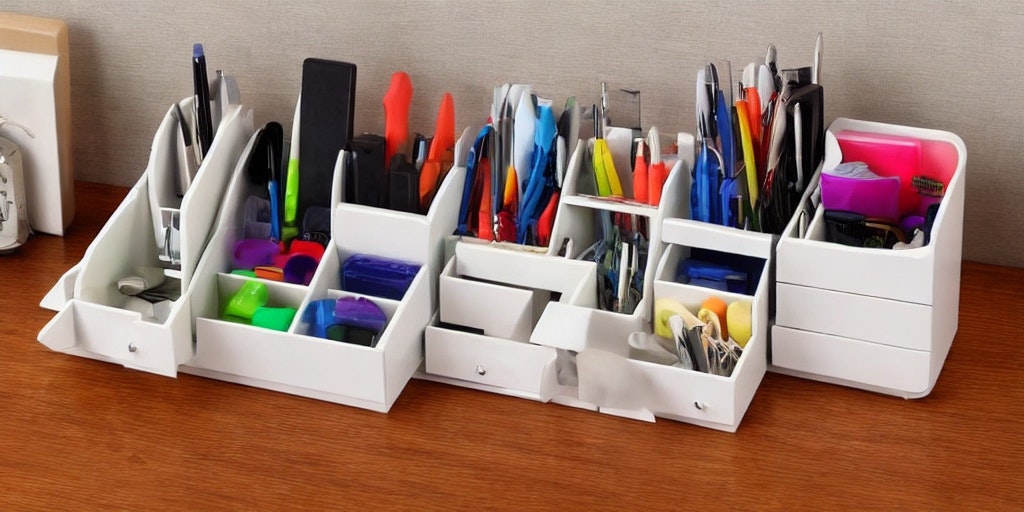
Desktop Organizer
A desktop organizer with compartments or drawers can keep pens, scissors and other small items easily accessible yet out of sight.
This can be especially helpful if you find yourself constantly searching for a pen or a pair of scissors amidst the clutter on your desk.
With a desktop organizer, you can have a designated spot for each item, making it easier to find what you need when you need it.
Alternatively, you may prefer options such as a transparent desk organizer that lets you see the contents for quick access to specific items. The best desk organizer is one that suits both your organizational needs and aesthetic preferences.
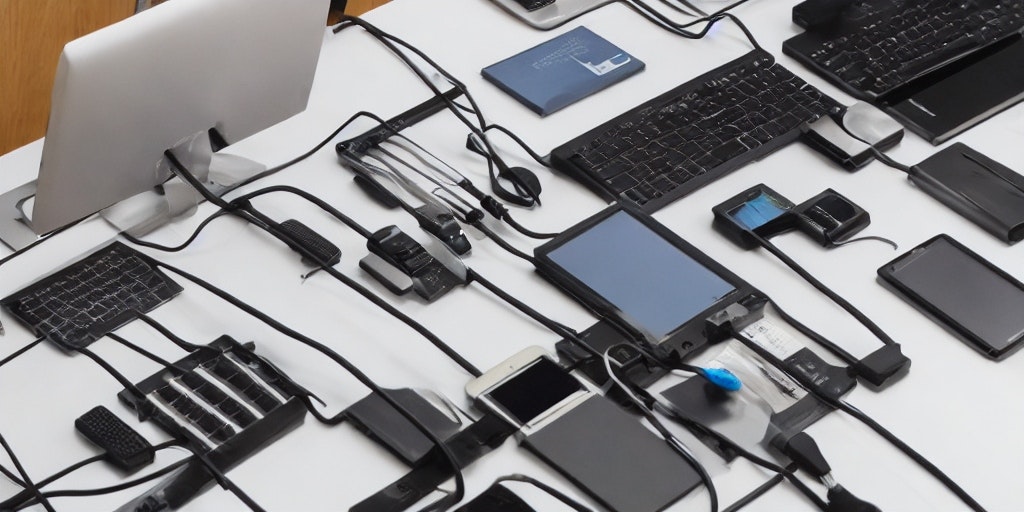
Cable Management
Cable management solutions, such as cable clips or wire sleeves, can help keep your workspace free of tangled cords.
You can neatly organize your cords, preventing them from getting tangled and creating a cleaner and more organized workspace.
Your desk will look better and it will also make it easier to plug and unplug devices without any hassle.
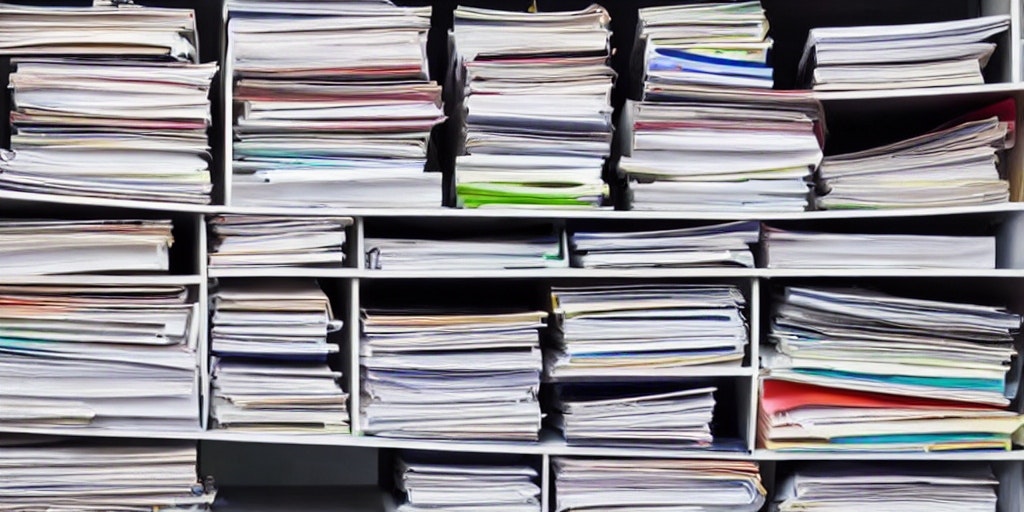
Document Storage
If you're someone who deals with a lot of paperwork, whether it's invoices, contracts or important documents, having a designated space to store and organize them is crucial.
A document tray or file organizer can help you keep track of your paperwork, ensuring that nothing gets lost or misplaced.
With a well-organized filing system, you can easily access the documents you need without having to sift through a messy pile of papers.
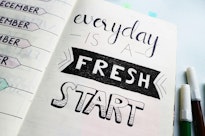
Desk Calendar
A desk calendar or planner can help you stay on top of deadlines and appointments. In today's fast-paced world, it's easy to forget important dates or appointments.
By having a desk calendar or planner, you can visually see your schedule and plan your days accordingly.
Whether it's a project deadline, a meeting or a personal event, having a calendar or planner on your desk can serve as a constant reminder of what needs to be done. It can help you prioritize your tasks and ensure that you never miss an important deadline or appointment again.
Creating a Personalized System for Managing Paperwork
Managing paperwork is often a challenge in an office setting.
The constant influx of documents can quickly become overwhelming and lead to disorganization.
To tackle this issue, it is essential to create a personalized system that works for you and helps streamline your workflow.
Sort Incoming Documents
One of the first steps in managing paperwork effectively is to sort incoming documents into different categories.
This initial sorting process allows you to prioritize tasks and ensures that nothing gets overlooked.
You can create categories such as "to-do", "to file" or "to scan", depending on the nature of the documents.
Implement a Filing System
Implement a filing system that suits your needs. You can choose between a physical filing system or a digital one, depending on your preferences and the type of documents you handle.
For physical filing:
- Invest in sturdy folders and label them clearly to make it easier to locate specific files when needed.
- Use color-coding techniques to further enhance organization and quick retrieval.
For digital filing:
- Document management software digitizes files, making them easily accessible and searchable.
- Software provides features such as tagging, indexing and version control, significantly enhancing your document management capabilities.
Purge Unnecessary Paperwork
Regularly review and purge unnecessary paperwork. Set aside time periodically to go through your files and discard anything that is no longer relevant or required.
This practice will help keep your filing system streamlined and prevent it from becoming overwhelming.
Cloud Storage
By digitizing and storing your files in the cloud, you get secure backup and can access them from anywhere, at any time, using any device.
This flexibility is particularly useful for individuals who work remotely or need to share documents with colleagues or clients.
Strategies for Maintaining an Organized Desk on a Daily Basis
Maintaining an organized desk is an ongoing process that requires consistent effort.
Here are some of the best desk organizer strategies to help you keep your desk in a state of order daily:
Tidy Before Leaving Your Desk
Before leaving your desk at the end of each workday, take a few minutes to tidy up. Put away any supplies or documents that are out of place.
This simple act of tidying up not only ensures that your desk is neat and organized when you return the next day but also helps to clear your mind and create a sense of calm.
Sort Mail and Paperwork Immediately
Sort and organize incoming mail and paperwork immediately. As soon as you receive a piece of mail or a document, take a moment to determine its importance and decide whether it needs to be filed, responded to or discarded.
By dealing with these items promptly, you can prevent them from accumulating and overwhelming your workspace.
Regularly Declutter Storage Areas
Regularly review and clean out your drawers and storage areas. It's easy for these spaces to become a dumping ground for miscellaneous items, making it difficult to find what you need when you need it.
Declutter and discard any items that are no longer needed or useful, freeing up space and making it easier to locate and access the items you do need.
Use a Desktop Organizer
Desktop organizers or trays can be incredibly helpful in keeping frequently used items within easy reach. They can store pens, sticky notes, paperclips and other small office supplies.
There are plenty of different designs to choose from, such as a transparent desk organizer if you want the contents to be tidy yet visible or options that conceal the contents for a more minimalist look.
Store Personal Items Separately
Create a designated spot for personal items like your purse or wallet.
By having a designated spot, such as a drawer or a hook on the wall, you can keep your personal items separate from your work items, creating a clear boundary between your personal life and your professional life.
Frequently Asked Questions
Declutter your desk at least once a week to prevent unnecessary clutter buildup. A clean and organized desk creates a visually appealing workspace and improves productivity and focus. A clutter-free desk with only the essentials within reach eliminates distractions and lets you easily find items, saving time and reducing stress.
Use a desk calendar or planner to record important dates and deadlines and regularly update it. Set reminders on your computer or smartphone for added assistance. Some people prefer a traditional paper calendar that they can physically write on, while others prefer a digital calendar that’s accessible from multiple devices.
Shred and recycle documents containing sensitive information. For other paperwork, consider digitizing it to save space and make it more accessible when needed. Back up digital files regularly to avoid potential loss. Also consider confidential waste bins, which often come with locking mechanisms to protect the contents until they’re destroyed.
Final Thoughts
A clean and organized desk space is visually appealing and also plays a significant role in promoting physical and mental clarity. Take the time to declutter, establish organizing systems and maintain good habits to optimize your workspace.
By investing in desk organizing accessories and creating a personalized system for managing paperwork, you can create an environment that fosters productivity, reduces stress and enhances overall well-being. Remember, an organized desk is a reflection of an organized mind!
